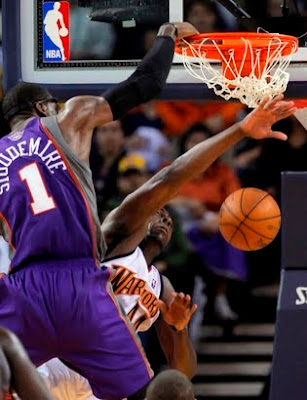From Zach Lowe re Boogie:
As I wrote in May, there was not much of a market for him -- and almost none among teams with cap space once Dallas and DeAndre Jordan pulled the NBA version of college crushes who finally (and sloppily) make the leap when they run into each other at a bar in their mid-20s. This is the legacy of the regrettable 2016 cap spike: too many bloated, preposterous contracts from that summer clogging books today, leaving very little for quality players -- and disproportionately pumping up the power of that mini-midlevel exception. The spike enabled the Warriors to sign Kevin Durant. Now it has wrought this.
A number of teams had a No Cousins policy before he tore his Achilles. That number grew as teams feared committing to what might be a less explosive version of him. Remember: Any contract inked as part of a sign-and-trade must encompass at least three seasons. That might have been too long for teams that would have to send out some meaningful asset for him.
Only the first year's salary in such deals must be guaranteed, meaning teams could trick the system by making the final two nonguaranteed -- $0 if things go badly. That, of course, is unfriendly for Cousins. If he underperforms, the team walks away. Cousins might have been able to earn a little more scratch in 2018-19 under such a contract, but it's unclear if even that kind of deal was out there -- or if he would have cooperated with the Pelicans in arranging it. (Portland and New Orleans had very preliminary talks about a sign-and-trade, sources say, but Portland's salary target is murky and it might have pushed for at least one nonguaranteed year. As ESPN's Chris Haynes reported, the deal never got off the ground -- in part because Cousins and Jusuf Nurkic, Portland's incumbent free-agent center, share an agent.)
Play well leading into those nonguaranteed years and the team has you for the next two seasons at a below-market rate. Cousins now gets to prove himself with Golden State, and slip back on the market just as more space opens up.
By the middle of Monday, Cousins' people were calling teams and pitching deals: one-year, $15 million in one place, per sources, other numbers in other places. Clearly, there was not much interest. It might be that the richest deal easily and quickly available to him was that full midlevel exception contract starting at around $8.6 million.
Any team offering that -- and I'm not sure as of this writing that one did -- might have sensed its leverage and tried to coax Cousins into a two-year deal at that price. For many of them, that was the smart play. Cousins would have justifiably resisted. Others are hoarding cap space for the summer of 2019 and so would have restricted their offers to one season.
A one-year deal didn't make much sense for almost any other team beyond Golden State. (The Celtics tried, per Haynes, but are not busted up about missing out. The Rockets, always hungry for stars, may have some remorse about not chasing Cousins at this price -- though they could not guarantee him a starting spot, perhaps a dealbreaker.)
http://www.espn.com/nba/story/_/id/23979341/zach-lowe-demarcus-cousins-golden-state-warriors-nbaI thought he'd have a hard time finding a deal, particularly once Dallas signed Jordan, and I wouldn't have wanted to give him much money past a year either because there is a good chance he's damaged goods. Even if we didn't have Ayton. Could be a killer if you gave him a long term deal. But there were rumors we had that no Cousins policy in place before the injury anyway.














